The clock is running down on Britain’s food security.
A joint letter to government calls on all parliamentarians to act now to secure the nation’s food supply.
Rural Policy Group (RPG), The Institute of Directors (IoD), Whitehead Monckton, MHA, the UK member of Baker Tilly International, and other partners have expressed their concern at declining levels of food production in the UK and its consequences for the environment, economy and society.
Over summer, RPG visited four of the UK’s biggest agricultural shows to ask farmers what they need from the new government to stimulate investment in British agriculture, food and farming. The tour started at the South of England Show before progressing to Lincolnshire, Kent and finally the Great Yorkshire Show.
Agribusinesses across the country had the same resounding messages for government.
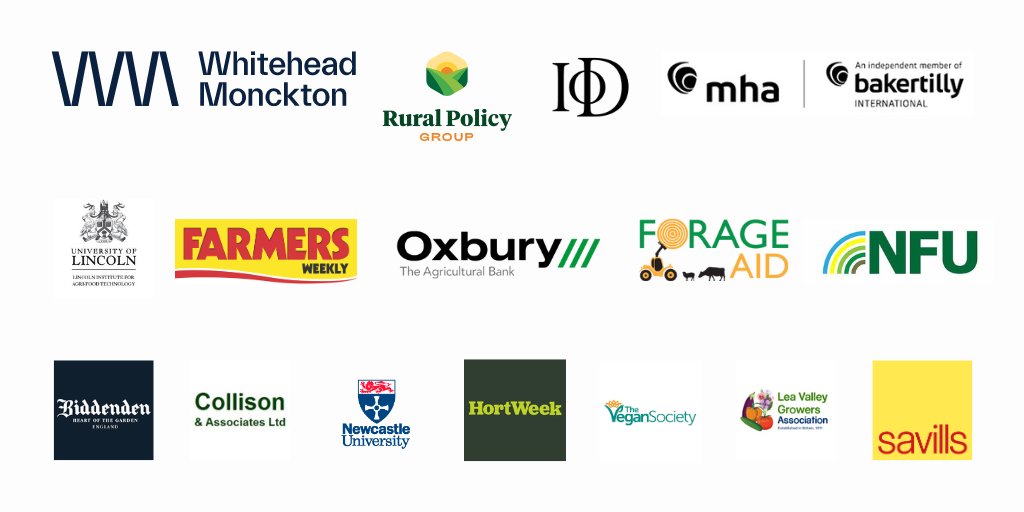
Read the open letter to government in full
24 September 2024
Dear Prime Minister,
The Rural Policy Group, with the Institute of Directors, MHA, Whitehead Monckton and other partners, calls on the government and fellow parliamentarians to consider the UK’s £147.6 billion food supply chain in all policies.
Food security is a matter of national security. Conversely, food production is rarely recognised as a matter of national importance because it is assumed that what we do not produce we can import. Recent geopolitical and climate events have exposed fragilities in global supply chains and shown this assumption to be flawed. The rationing of tomatoes and salmonella warnings on imported eggs are two such examples, in recent memory, when relying on imports to make up for shortfalls in domestic production has let British consumers down.
Food producers have shown themselves to be resilient and resourceful in response to shocks, but across the industry there has been a downturn in the production of cereals, eggs, salad crops and other fresh produce staples. We cannot ignore the stark truth – farmers are disinvesting from food and consumers are going without. Until we return profitability to food production, the UK will continue losing irreplaceable ‘corporate knowledge’ which erodes its capability to deliver food security.
Food security grounded in thriving domestic production is also capable of helping to plug the economic and societal black holes inherited by the new government.
Food is underestimated as an engine of economic growth. The food value chain is worth £146.7 billion to the UK economy and employs 13% of the country’s workforce. Food manufacturers contribute more than automotive and aerospace manufacturing combined. Stimulating investment in food production creates employment and opportunity in rural locations, it reduces the trade deficit and drives innovation.
The role of food in levelling up society is similarly underestimated in policy. As an equigenic industry agriculture helps improve health outcomes amongst disadvantaged sections of society through the provision of affordable, nutritious food and access to green spaces. The improvements to personal wellbeing on a national scale deliver productivity gains to the economy and help conserve NHS resources.
We wholeheartedly urge government to give agriculture, food and farming greater significance in policy decisions and to consider a food security policy which prioritises self-sufficiency over imports. It would be foolhardy to rely on imports at a time when extreme and unseasonal weather patterns and geopolitical events are apt to constrict supplies. The result would be higher prices, less choice, rationing and lower quality produce for British consumers.
Greater reliance on domestic production helps manage food price inflation, guarantees food standards, treads more lightly on the environment and contributes to economic growth.
Rural Policy Group spoke to farmers and food industry professionals around the country to ask what the food value chain needs from the new government to restore confidence in food production.
Below are the industry’s top priorities to stimulate investment:
- Supply chain fairness
- Cross-departmental action on labour and skills shortages
- Review the planning process to speed up decisions
- Level the playing field with equivalence of standards for imports
- Policies and strategies which extend beyond the 5-year election cycle
- Consider how environmental policies and legislation intersect with food production
In the appendix, leading industry figures explain what government can do to stimulate growth in their own words.
Yours sincerely,
Katie Tucker Mark J Lumsdon-Taylor
Executive Director Chairman
Rural Policy Group Rural Policy Group
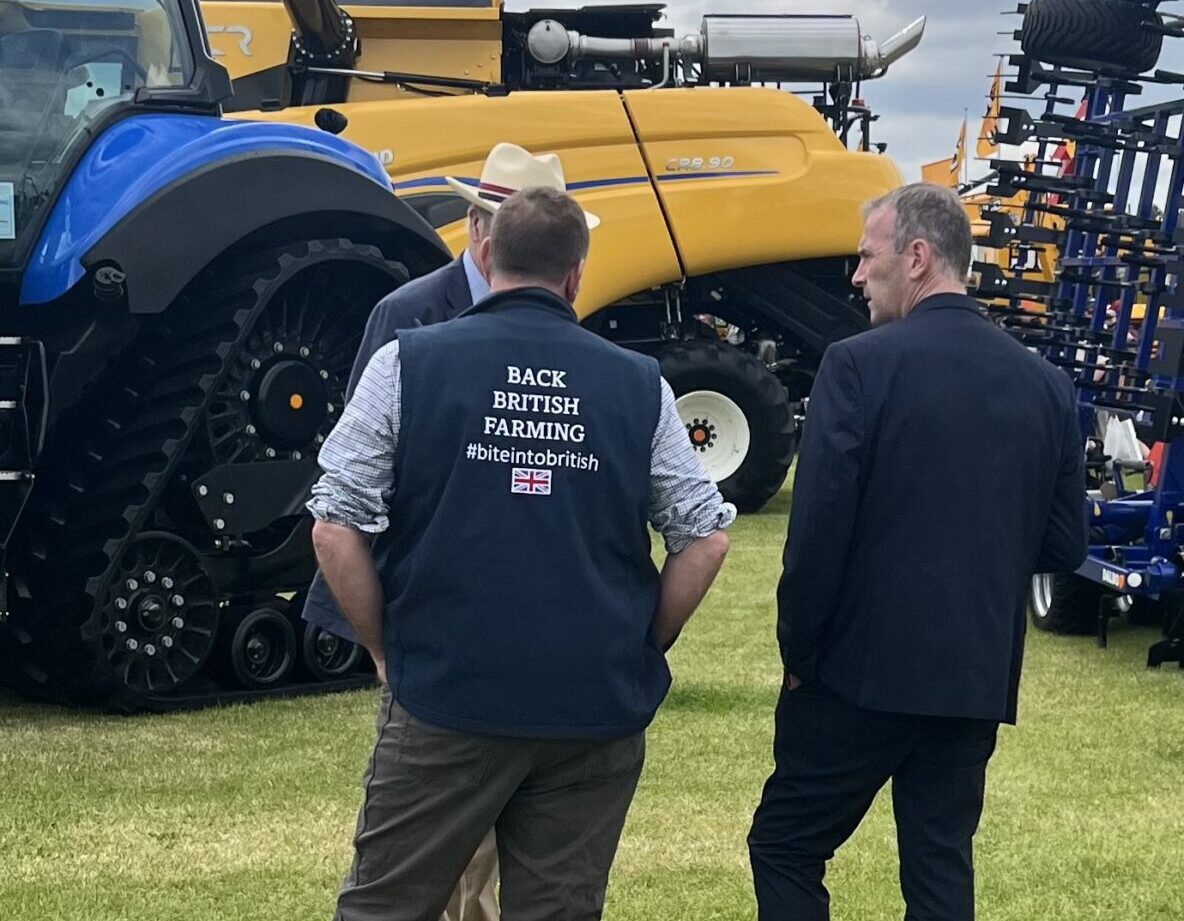
What the farming community needs and wants from the new government in their own words…
“We need to recognise our food supply is vulnerable. Investing in domestic food production today is our food security tomorrow. We need a thriving, profitable and productive food sector which delivers for the environment and enables farmers to reinvest in their businesses for the future”.
Tom Bradshaw | President, NFU
“My ask of the new government is that we grow the fresh produce sector. At the moment we import many of the products we consume. We can grow that sector and we can do it quickly. In the process we will create jobs, create low carb types of food and grow healthier foods. There is nothing to lose and everything to gain so I’d like to see us drive forward a horticulture strategy to grow the fresh produce sector as rapidly as we can”.
Martin Collison | Managing Director, Collison Associates
“The Vegan Society call on the Labour Government to show global leadership, with a fully funded UK-wide collaborative ‘Action Plan for Plant-based Foods’ like Denmark. Empower UK farming & food experts to make a just transition to more sustainable, plant-based food & farming systems!”
Helena Davidson | Campaigns & Policy Assistant, The Vegan Society
“As business advisors and accountants to the farming sector, we have a deep understanding of the challenges facing modern agribusiness. Simply, not enough farmers are able to make money out of food. We see a lot of farms diversifying into solar, commercial rentals and other activities to try and keep other parts of the farm in production, but until food becomes profitable again farmers will reluctantly continue to find alternative uses for their land. Food has historically been subsidised through farm payments and with the move away from that model, food pricing is due for a review”.
Sarah Dodds | Partner and Head of Agriculture, MHA and Farmer
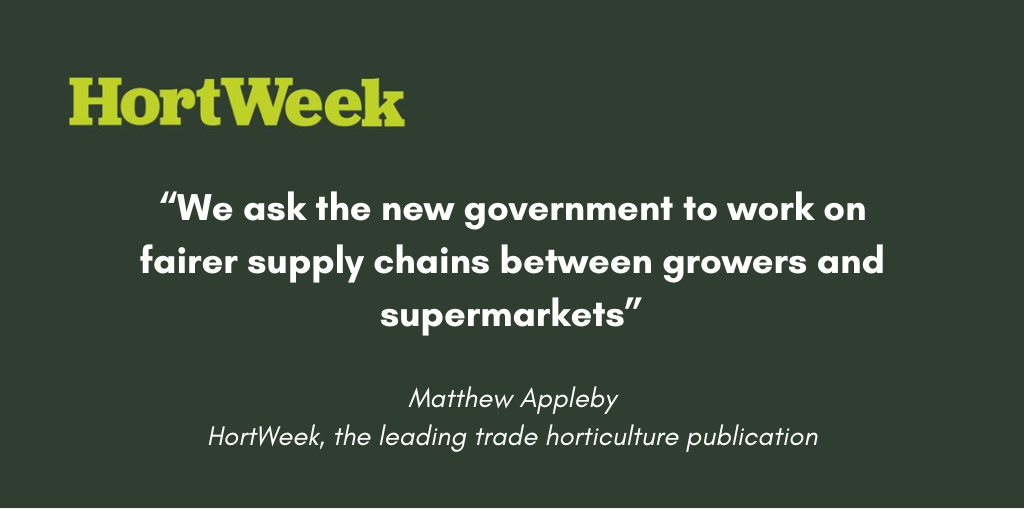
“The availability of skills and labour remains a top issue for all businesses, including those in agriculture and food production. We know that farmers, in particular, are continuing to face significant challenges in recruiting for vital roles in their businesses.
“At the Institute of Directors, we are calling on the government to use the new Skills England body to identify areas of skills shortages and provide employers with support to reskill and upskill employees in those areas. Not only would this ensure the most targeted possible use of taxpayers’ money but is also, by definition, most likely to fix the ‘skills shortages’ issue that has long caused difficulties for businesses.
“It is also vital that the insights generated by Skills England are used to develop an immigration system which is genuinely responsive to acute skills shortages.”
Jon Geldart | Director General, Institute of Directors (IoD)
“Every farmer I know has been challenged by the double whammy of high inflation and high interest rates. The cost of inputs has risen faster than the sale prices we can realise and mortgage repayments have shot up. The most important thing the government could do to benefit the whole sector is to stabilise the economy”.
Olly Harrison DL | Farmer, Entrepreneur and Blogger
“Farming would benefit from long-term cross-party working that extends beyond the 5-year election cycle. More immediately, we need government to look at the investment required to meet the demands on farming and agricultural land, and ways in which it can work with industry to bring clarity and confidence to unlock private investment”.
Kelly Hewson-Fisher | Head of Rural and Research, Savills and Chair of the Lincolnshire Farming Conference
“UK’s farmers & food producers have exciting opportunities exporting high quality, high value UK fresh food to Europe, GCC, USA & the Far East. However there needs to be policy change within DEFRA. There are issues on gaining market access across many food categories. UK producers have the ability but not the opportunity to export to eager overseas buyers.t”.
Paul Knights | Co-Founder, Produce Plus
“The new Defra team need to consider how regulation around scope three emissions and other environmental policies will affect the agri-food supply chain. The introduction of contractual obligations around emissions will mean new behaviours and a heavier burden of audit compliance for farm businesses. We need governmental support to establish a baseline set of metrics for farms to work towards.
“This support would need to include spearheading the national effort to develop new technologies so farmers can harvest the data they need to report accurately on environmental results. Funding, nationally co-ordinated R&D programmes and an emphasis on applied research are needed to make ideas a reality. Commercialising environmental outputs requires the ability to monitor, measure and manage those outputs to make certain farmers receive a fair reward”.
Mark Lumsdon Taylor | Partner and Head of Sustainability ESG, MHA and Chairman of Rural Policy Group
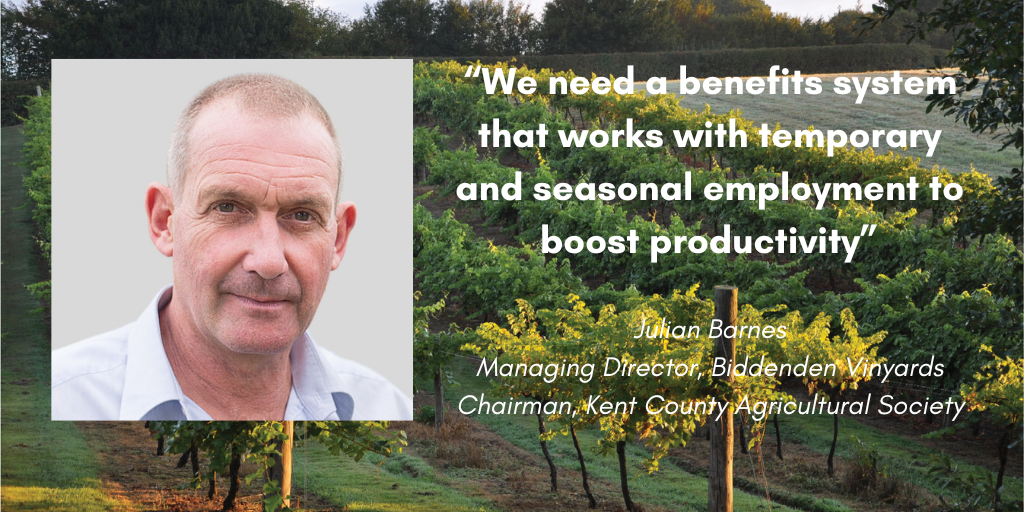
Louise Manning | Professor of Sustainable Agri-Food Systems, Lincoln Institute of Agri-Food Technology (LIAT), University of Lincoln
“We need clarity around the new budget. So many decisions will flow from that”.
Andrew Meredith | Editor, Farmers Weekly
“I would like to see leadership from the government on planning regulation reform to release the investment in finance which will allow Britain’s farmers to increase production and reduce our reliance on imports. Not only will this support the viability of farm businesses, but higher output will also contribute to more competitive pricing for consumers”.
Matt Ryan | Head of Farmer Relationships, Oxbury Bank Plc
“The linkages between healthy food and a lower burden on the NHS are under-recognised. From a systemic perspective, an investment in agricultural productivity is an investment in health and economic growth. These investments will return savings in other areas and boost workforce health and productivity across the wider economy”.
James Standen | Farms Director, Newcastle University
“British farmers produce food to a world-beating standard and often with our hands tied behind our backs by regulation, but imports produced in ways which are banned here are allowed into the country. I’d like to see a level playing field where imported food matches the high quality we produce at home and consumers are guaranteed the best product”.
Andrew Ward MBE | Managing Director, Roy Ward Farms and Founder, Forage Aid
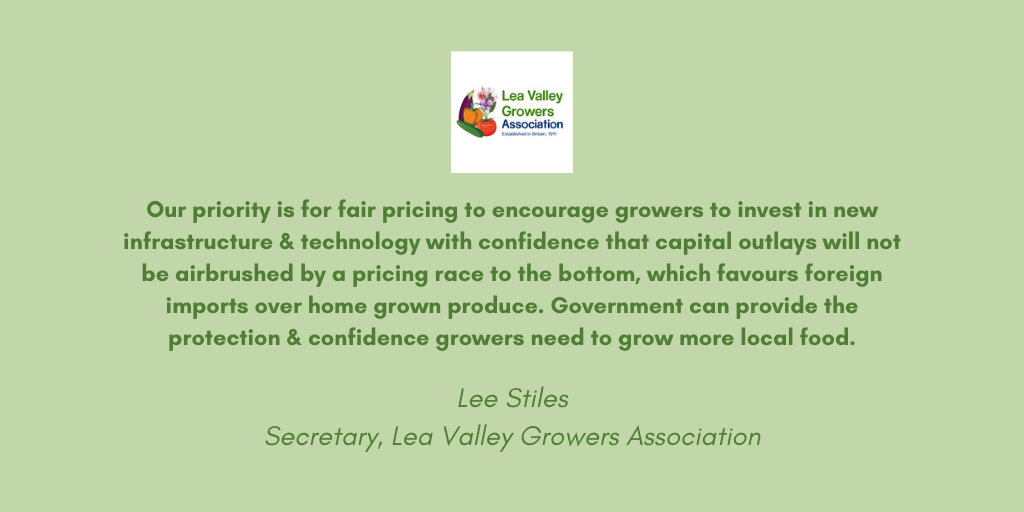
Some of the signatories to the open letter talk passionately about fair value for farmers, stimulating investment in farming and food security
Andrew Ward MBE, Farmer
Prof. Louisee Manning, LIAT
Tom Bradshaw, NFU
Helena Davidson, The Vegan Society
Martin Collison, Collison Associates
Olly Harrison DL, Farmer
Matt Ryan, Oxbury
James Standen, Newcastle University
Andrew Meredith, Farmers Weekly
Mark Lumsdon-Taylor, MHA
More from the farmers of Lincolnshire and Yorkshire
Listen here: what farmers at the Lincolnshire Show had to say to the incoming government
Listen here: how farmers in Yorkshire would shake up sustainable agriculture
RPG’s latest Sustainable Food Report shares more in-depth analysis and insight into some of the challenges this letter outlines
The Sustainable Food Report: Building a more resilient agri-food value chain

